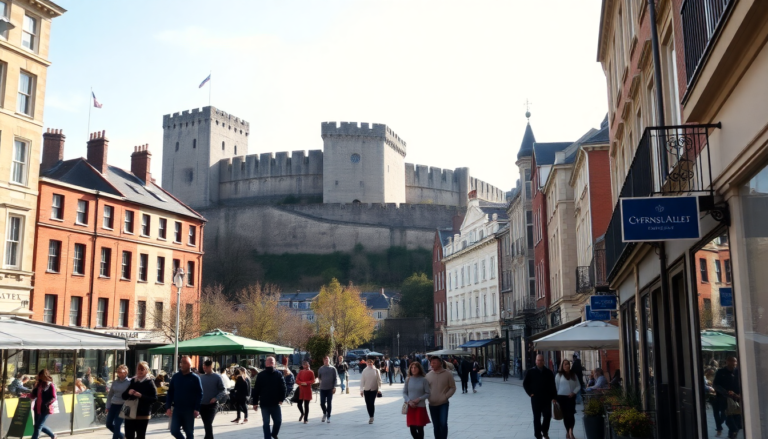Uncover the layered history of the UK and its current role on the global stage, from past empires to modern democracy.

Topics covered
The United Kingdom, or UK, stands as a sovereign nation in Western Europe, renowned for its historical depth and diverse culture. Comprising four distinct countries—England, Scotland, Wales, and Northern Ireland—the UK boasts a wealth of stories and influences that shape its identity today.
From the bustling streets of London to the serene landscapes of the Scottish Highlands, the UK is a blend of tradition and modernity, making it a fascinating subject of exploration.
A brief overview of the UK
The UK is a constitutional monarchy that has seen significant evolution over the years.
It shares its borders with Ireland and plays an active role in numerous international organizations, including the United Nations, NATO, and the G7. Notably, it was once a member of the European Union until Brexit in 2020, marking a pivotal moment in its contemporary history.
Historically, the UK had the sixth-largest economy globally by nominal GDP in 2019, showcasing its enduring economic strength.
Population and language
With approximately 95% of its population being English speakers, the linguistic landscape of the UK is predominantly English. However, the rich tapestry of its society includes a variety of languages brought by immigrants, reflecting the UK’s multicultural nature. Major cities like London, Birmingham, and Manchester are vibrant hubs of diversity, where numerous communities coexist, each contributing to the country’s cultural fabric.
The rise and fall of the British Empire
Between the 17th and mid-20th centuries, Britain emerged as a formidable world power, establishing a vast colonial empire that spanned continents. At its zenith in 1922, the empire encompassed over 458 million people, which accounted for a staggering one-fifth of the world’s population. It was often referred to as ‘the empire on which the sun never sets’, a testament to its global reach. However, the decolonization movements of the 20th century led many nations to gain independence, though the UK maintains connections with several former colonies today.
Historical milestones
The history of human habitation in Britain dates back nearly a million years, with archaeological evidence pointing to the presence of hunter-gatherers even after the last ice age. The Romans invaded in 43 AD, bringing writing and structured governance, which laid the foundation for future developments. As waves of different cultures and tribes, such as the Angles, Saxons, and Vikings, settled in various parts of Britain, a rich history of conflict and unity began to unfold.
Modern governance and political system
Today, the UK operates as a parliamentary democracy under a constitutional monarchy. King Charles III serves as the head of state, while the Prime Minister leads the government. The UK Parliament, located in Westminster, consists of the House of Commons, which is the most powerful legislative body, and the House of Lords. Significant political milestones include the establishment of devolved governments in Scotland, Wales, and Northern Ireland, allowing these regions to exercise some legislative powers independently.
The significance of the Union Jack
The Union Jack, a symbol of the UK, represents the union of England, Scotland, and Northern Ireland, and has evolved over the years to reflect the country’s complex history. Its design incorporates elements from the crosses of St George, St Andrew, and St Patrick, symbolizing the unity of its constituent countries.
Contemporary issues and climate initiatives
As the world grapples with climate change, the UK is taking significant steps toward sustainability. In September 2024, it became the first G7 nation to phase out coal power for electricity generation, marking a monumental shift in its energy policy. The government aims to achieve carbon neutrality by 2050, demonstrating a commitment to reducing greenhouse gas emissions and leading global efforts to combat climate change.
Education and cultural impact
The UK has a rich educational heritage, home to some of the world’s oldest universities, including Oxford and Cambridge. The British literature scene boasts renowned authors such as William Shakespeare, Jane Austen, and J.K. Rowling, whose works have had a profound influence worldwide. The BBC, a leading broadcasting organization, serves as a cultural cornerstone, disseminating news and entertainment across the globe.
Transportation and infrastructure
The UK’s transportation network is extensive and well-developed, with a mix of road, rail, and air travel options. The country drives on the left side of the road, a distinctive feature that travelers often note. The rail system, renowned for its historical significance, is the oldest in the world and continues to be a vital component of daily life, facilitating connections between major cities and regions.
Final thoughts on the UK’s journey
The United Kingdom’s journey is one of transformation and resilience, reflecting a society that has navigated centuries of change. As it embraces modern challenges while honoring its rich history, the UK continues to play a vital role on the global stage. Its ability to adapt and innovate will undoubtedly shape the narrative of its future.




